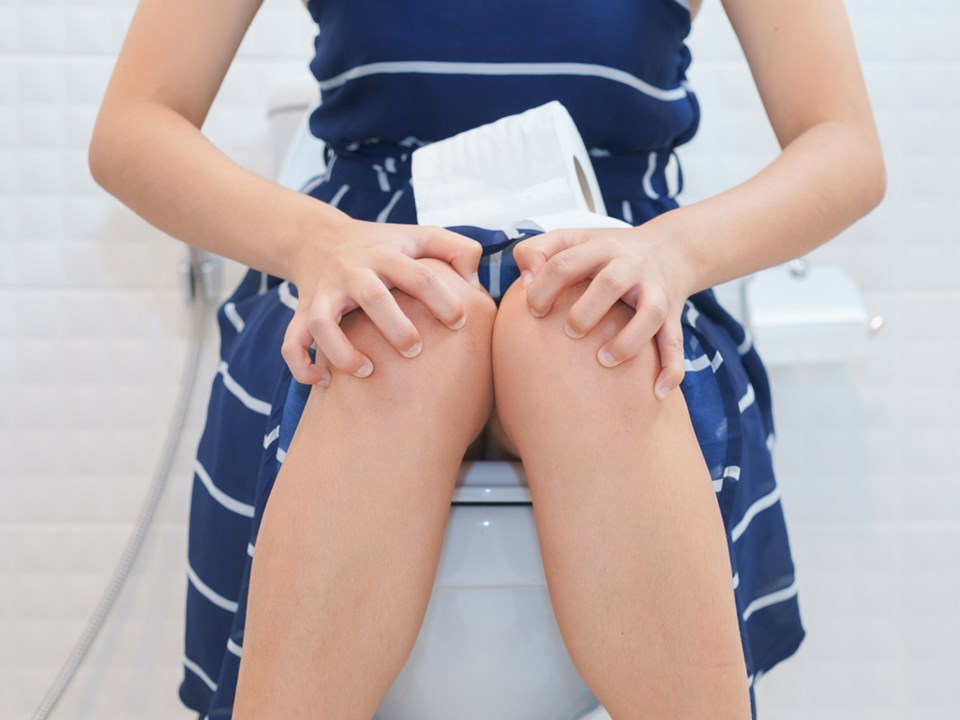Pooping at work: many of us do it, yet few of us ever talk about it.
In fact, taking a poo in the office bathroom can cause so much anxiety that many folks go to great lengths to cover their tracks.
Recently, the New York Times published a piece on women going number two at work and the poop-hiding tactics they employ. Among them include the “flush hush,” which is when you flush multiple times to silence any pooping sounds.
Another is the “scatological standoff,” which is when two or more people sit silently in their respective stalls until someone poops first, or gives up on their bowel movement altogether. If it sounds tiresome, it is.
According to Ottawa-based Julie Blais Comeau, the chief etiquette officer at Etiquette Julie, it’s still largely taboo to go number two in work bathrooms.
“Pooping… is a sensory experience,” Blais Comeau explained.
“There are the sounds — a plop is quite different than tinkling — and there are the sights; after-poop could be visible [in the toilet]. There is the smell, as well.”
Poop shame
Because pooping is something often done in private, Blais Comeau said, it can be incredibly uncomfortable having this experience at the place you work. Just think: your colleague could recognize your shoes peering out of the bathroom stall, or hear you let one rip.
“There is also the element of hierarchy,” Blais Comeau added. “If you’re a boss and you’re going to the bathroom, you’re looking for privacy.”
Lisa Orr, a Toronto-based etiquette coach, said there’s pressure in North America to “look good and smell great at all times.” Pooping goes against this societal expectation.
“We worry that people will think less of us if they hear or smell something that doesn’t reflect that put-together image we are trying to present,” Orr told Global News.
Women have different experiences than men
The expectation to hide our natural bodily functions is often felt more by women, both Orr and Blais Comeau said. As the Times article points out, women are often conditioned to be “clean, odourless and groomed.”
This can be traced back to childhood, Blais Comeau said, as boys will often fart and laugh about it, but if a girl toots loudly, the reaction may be embarrassment.
“Culturally, there are still ways that women and men are being educated differently,” Blais Comeau said.
These gendered differences are carried into adulthood and straight to the workplace bathroom.
“I think it is more challenging for women who are often expected to be immaculately put together at all times, [but] the reality is our bodies’ elimination systems don’t care about those expectations,” Orr explained.
Bathroom etiquette
If you walk in on a co-worker taking a poop, it’s important not to react, Orr said. Don’t start a conversation with them, and don’t make comments about sounds or smells.
If you are the one relieving yourself, try to be courteous of the next person using the bathroom, Blais Comeau said. That means flushing once you are done (or multiple times, if necessary) and ensuring you’ve left enough toilet paper.
If your workplace has a bathroom air freshener spray, you may want to use that, too.
Do attitudes need to change?
Holding in your poop is incredibly uncomfortable, and it can be hard to focus on tasks at hand when your stomach is sending you a message. Because poo is part of our regular routines, Orr says that taking a number two at the office should be more normalized.
“The workplace is challenging enough without having to worry about holding it or being judged by your colleagues for sounds and smells,” she said.
Orr points to ways that workplaces can make employees more comfortable, like extending bathroom doors to the floor so there are no open gaps between stalls. She also suggests having music playing in bathrooms so there’s no silence.
“Another nice thing offices can do is to have out-of-order signs available and an easy way to get in touch with maintenance in case of a number two gone wrong,” Orr said.
That way, people will be less terrified of clogging toilets or finding themselves in “humiliating” poop situations.
The most important thing, Orr adds, is that employees not judge themselves or each other for pooing. It’s a natural part of life and we all do it.
“Everyone has to use the facilities at work, and if you aren’t going number two every day, that is the bigger problem,” she said.
- Global News
Follow @lolahensley


